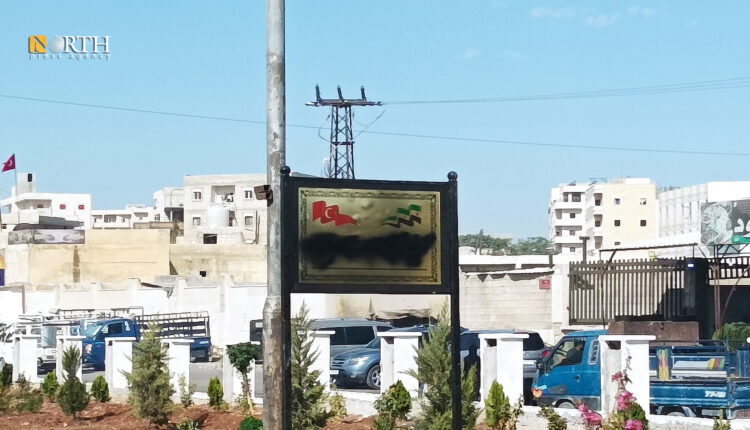
By Hani Salem
AZAZ, Syria (North Press)— TheTurkish government surprised residents of northern Syria by appointing a single governor to oversee its areas of influence and its affiliated armed factions in the region, despite a lot of serious human rights violations and ongoing security chaos.
Last month, a Turkish newspaper stated that Ankara is determined to implement an administrative system in 13 areas in northern Syria based on the principle of a single governor.
A administrator in the Afrin Local Council, affiliated with Turkish-backed Interim Government of the Syrian opposition, explained that the single governor system aims to enforce unified decisions and orders, avoiding the discrepancies that characterized decisions issued by the three regions that governed the 13 areas in northern Syria, from Jindires to Ras al-Ain. The governor will directly coordinate relations between Ankara and the local councils responsible for these areas.
“The project proposed by Turkey does not address the aspects of security and military chaos, and ignores the factions’ violations during the past periods, in addition to the corruption and abuse of position by the seven coordinators who were supervising the regions in line with the laws of Hatay, Gaziantep, and Urfa,” the administrator told North Press.
According to the administrator, the appointment of a single governor for northern Syria aims to strengthen Turkey’s decisions and plans. This move further reinforces the Turkification policy implemented in institutions and vital facilities, while ensuring unified laws that are not divided like the previous ones.
Jalal Sawi, an Azaz-based lawyer, says, “The plan of the single governor is an attempt to evade the significant violations during the rule of the previous seven coordinators, shifting the blame onto them in the face of extensive human rights and humanitarian reports documented within Turkey’s areas of influence over the past years and within the 13 areas.”
“The previous system of seven governors, implemented after military operations such as Peace Spring, Euphrates Shield, and Olive Branch, resulted in military and security chaos that will take years to rectify,” he explained to North Press. “During this time, there was a rampant spread of arms, drugs, human trafficking, and even the exploitation of children in suspicious projects.”
The project aims to fulfill Turkey’s interests in northern Syria administratively and in terms of services to increase the voluntary return of Syrians to the region after implementing several housing projects with support from Gulf countries.
“We may witness more strict decisions to step up the Turkification policy in the region in the future, despite being already implemented since Turkey’s control of the region, especially in Afrin,” he adds.
The new governor will be directly subordinate to Ankara, unlike the previous seven governors who were acting under orders of the governors of Hatay, Gaziantep, and Shanliurfa (Urfa).
Hussam al-Hazouri, an activist from Homs residing in Afrin, says, “The governor’s initial work will focus on redefining administrative relations with the local councils, with no significant impact on the military and security sectors. This means the continuation of the security chaos.”
